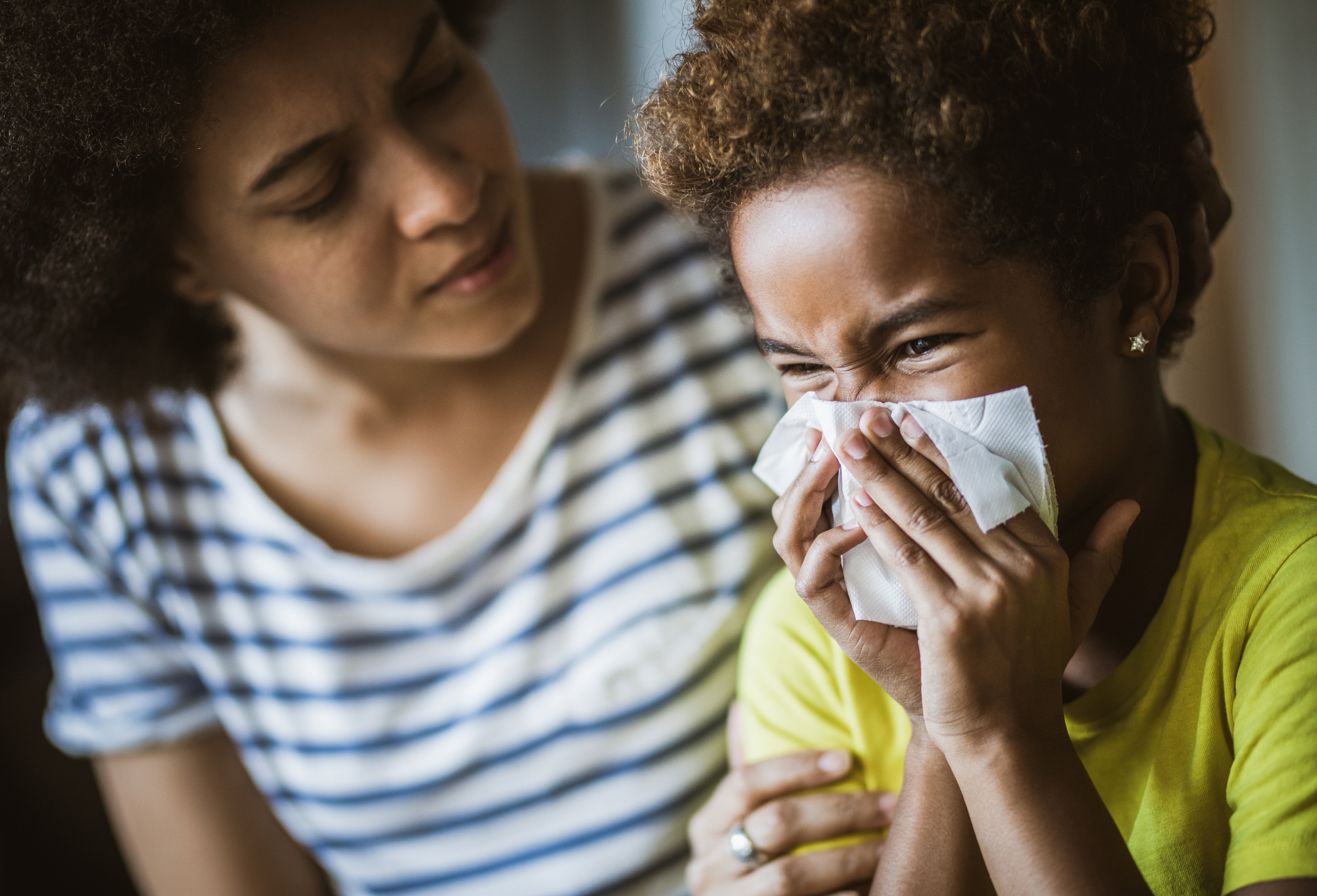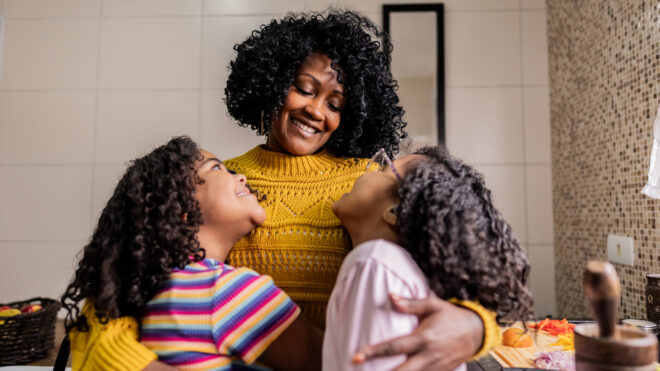

Playing outside is an essential part of childhood, but it can be a struggle for kids who suffer from seasonal allergies. All they want to do is play outside with their friends, but it leaves them with itchy eyes, a runny nose, and a scratchy throat. No parent wants to see their kids feeling sick, which is why allergy season is so hard. We all want to be able to hug the sniffles away, but unfortunately that's just not how it works. Unfortunately, seasonal allergies are just part of normal life for many kids — but it doesn’t have to be so bad!
Dr. Neeta Ogden, clinical advisor at Curex, explains, “For seasonal allergies, there are a few really helpful steps that can make a world of difference for your kids. First, identify what your child is allergic to. This can be done quite easily with at-home allergy tests through Curex. With this information, you are in a better position to tackle symptoms and practice avoidance, which are the cornerstones of dealing with allergies. Typically, if symptoms strike in early spring your child is most likely sensitive to tree pollen, if later spring in May and early June, grass allergens are the culprits. Come late summer and fall, ragweed and weed allergens are the problem. From here, you can follow your local pollen counts and try to avoid being outside on days when the counts are high. For kids, being outside is often unavoidable, so checking in with an allergy specialist is essential to creating an easy and efficient treatment plan rather than tackling the over the counter allergy aisle on your own. A good place to start however, is a 24-hour oral antihistamine and/or an intranasal steroid spray and antihistamine eye drops depending on your symptoms.”
Here are some more of our best tips for handling kids’ seasonal allergies:
1. Get an allergy test
The first step to treating allergies is finding out what exactly is causing the symptoms. Is it specific types of pollen, dust, or something else? With Curex’s at-home testing kit, you can avoid the guessing game and know exactly what your kiddo is allergic to.
2. Create a “no-pollen zone”
Keeping your kids’ bedroom a pollen-free zone is a must for allergy sufferers. Keep their windows and doors closed to keep the pollen out, and always make sure they change clothes & shower before heading to bed.
3. Change clothes often
Anytime your child comes in from outside, make sure they change their clothes! Keep their dirty clothes outside their bedroom so the pollen doesn’t make its way into their room.
4. Shower/bathe regularly
After your kid spends time outside, make sure they take a bath or shower to rinse off any pollen that may be on their skin. Dr. Neeta says it’s best to “bathe or shower at night, making sure to wash hair and gently wash eyes and eyelids, gently rinse out the nose with a saline spray. These last steps help remove allergens before going to bed.”
5. Treat allergy symptoms with over-the-counter medications
Nowadays, there are a ton of kids’ versions of allergy medications, which can help treat symptoms like red eyes, runny noses, itchy eyes & nose, and more. Dr. Neeta explains, “One of the most common mistakes I see is using medications incorrectly. Since so many allergy medications are now over the counter, people are dabbling in this and that and basically not using them effectively, at times even making things worse. Additionally, I see parents fearful of using treatments regularly and therefore undertreating their children’s symptoms.” Make sure to talk to your child’s pediatrician before giving them any medication.
6. Check the weather
On especially dry and windy days, you’ll want to avoid sending your child outside to play — these are the days when allergies are often the worst. Many weather websites now have pollen counts, so keep an eye on those to see how bad your kids’ allergies might be.
7. Run your air conditioner or purifier
Make sure you have a solid air conditioner or purifier to filter out allergens from the air — and consider buying HEPA filters for these items to make the air even healthier for your allergy-sufferer.
8. Look into long-term solutions, like immunotherapy
If you’re looking for a longer-term solution, immunotherapy may be a great option for you! Allergy immunotherapy provides long-term relief, lasting for years after you finish your treatment. Allergy immunotherapy is a clinician-supervised, prescription treatment for seasonal and environmental allergies. It’s the only clinically proven way to reduce your allergies, fixing the source, not just the symptoms (like other over-the-counter drugs). While this treatment has been the standard of care for allergies in Europe for decades, Curex is the first to bring sublingual immunotherapy to the United States — it’s cheaper and easier than allergy shots & doctors visits (and it’s safe for kids 6 and up!) Plus, no scary shots for the kiddos.
About Curex
Curex is a telehealth platform committed to helping people find freedom from allergies and offers telehealth clinical care, allergy testing, and at-home allergy treatment, including prescription immunotherapy. Curex brings together leading allergy specialists to provide you personalized, best-in-class allergy treatment at home.

Dr. Neeta Ogden is a board-certified adult and pediatric Allergy, Asthma and Immunology specialist and Clinical Advisor at Curex. Dr. Ogden is a member of the Medical-Scientific Council of the Allergy and Asthma Foundation of America (AAFA), a spokesperson for the American College of Allergy, Asthma and Immunology (ACAAI), member of the American Academy of Allergy, Asthma and Immunology (AAAAI) and a weekly contributor at CBSN. She is the Director of The Allergy, Asthma and Sinus Center, a private practice located in New Jersey, where she lives with her husband, two children, and two dogs.



